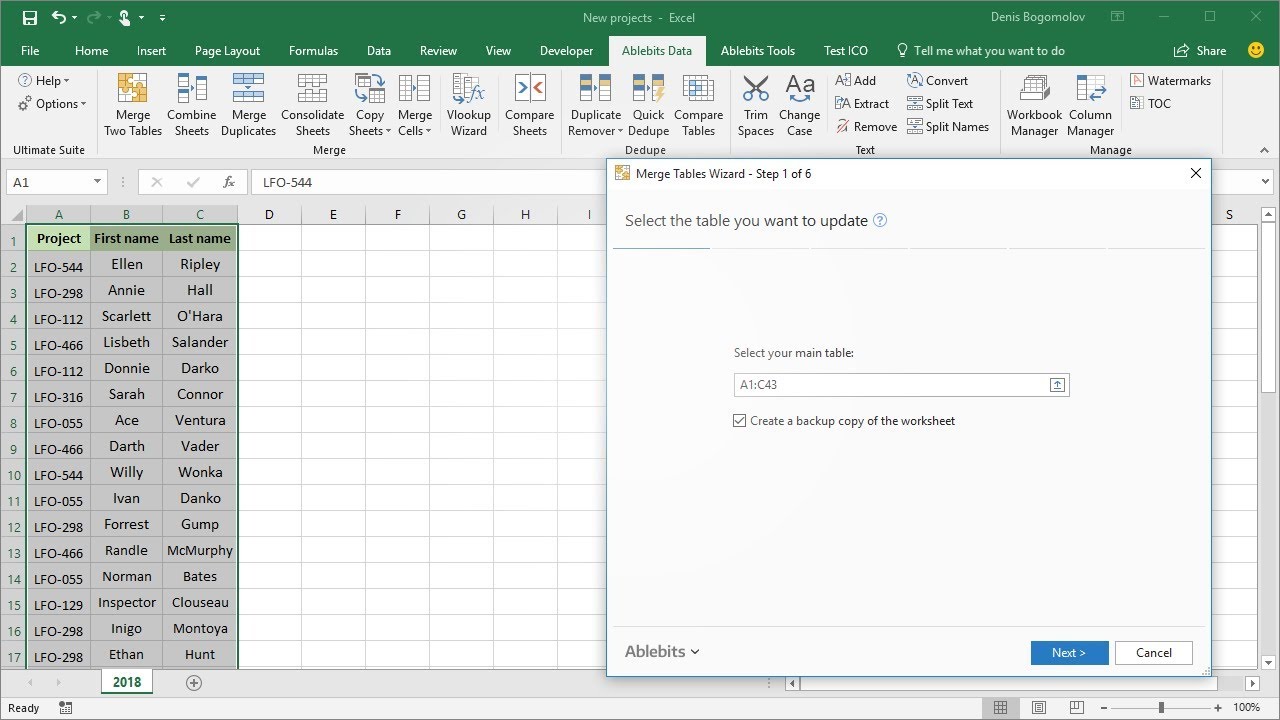How To Make Multiple Sheets In Excel Into One

Are you dealing with a large number of Excel sheets and need to consolidate them into one for easier data management and analysis? Here is your comprehensive guide on how to efficiently combine multiple sheets in Excel into one single spreadsheet. Whether you're consolidating financial records, customer data, or any other multi-sheet workbook, this guide will walk you through various methods to achieve this seamlessly.
Why Combine Multiple Excel Sheets?

Before diving into the methods, let’s understand why combining sheets can be beneficial:
- Unified Analysis: Combining sheets into one file makes it easier to perform data analysis over a broader dataset.
- Reduced File Management: Instead of managing multiple files, one consolidated file is simpler to handle.
- Ease of Sharing: A single sheet is more convenient to share with colleagues or stakeholders.
Method 1: Using Consolidate Feature

Excel’s built-in Consolidate tool can help you merge data from multiple sheets:
- Open your Excel workbook where you have multiple sheets.
- Go to the sheet where you want the data to be consolidated.
- Select the cell where you want the merged data to start.
- Go to Data > Consolidate.
- In the Consolidate window:
- Choose your function (e.g., Sum if you want to sum up numbers).
- Click on each range you want to consolidate in the Reference field, and add it to the list by clicking Add.
- If your sheets have headers, ensure Top row and Left column are checked under Use labels in.
- Click OK to consolidate.
📝 Note: This method works best when the data structure across sheets is consistent.
Method 2: VBA Macro for Advanced Consolidation

For more control or when dealing with complex data, VBA macros offer flexibility:
- Press Alt + F11 to open the VBA editor.
- Go to Insert > Module to add a new module.
- Paste the following VBA code into the module:
- Run the macro by pressing F5.
Sub ConsolidateSheets() Dim ws As Worksheet Dim finalSheet As Worksheet Dim lastRow As Long Dim i As Integer' Create or reference the final sheet On Error Resume Next Set finalSheet = ThisWorkbook.Sheets("Consolidated") On Error GoTo 0 If finalSheet Is Nothing Then Set finalSheet = ThisWorkbook.Sheets.Add finalSheet.Name = "Consolidated" End If ' Start from row 1 in the final sheet lastRow = 1 For Each ws In ThisWorkbook.Worksheets If ws.Name <> finalSheet.Name Then ' Copy data from each sheet ws.UsedRange.Copy finalSheet.Cells(lastRow, 1).PasteSpecial xlPasteValues ' Move to the next empty row for the next sheet lastRow = finalSheet.Cells(finalSheet.Rows.Count, 1).End(xlUp).Row + 1 End If Next ws Application.CutCopyMode = False
End Sub
🚀 Note: Adjust the VBA code to meet your specific needs or to handle headers and formatting.
Method 3: Power Query

Power Query is excellent for merging data from multiple sources:
- Go to Data > Get Data > From Other Sources > From Microsoft Query.
- In the Navigator, select the sheets you wish to combine.
- Click Transform Data.
- In the Query Editor:
- Right-click on each table and choose Append Queries to merge all selected sheets into one query.
- Make any necessary transformations to your data.
- When done, click Close & Load to add the merged data to your workbook.
What if my data isn’t consistent across sheets?

If your sheets have varying structures, consider these approaches:
- Manual Data Entry: If the number of sheets is small, you might opt for manually copying and pasting data, aligning columns as necessary.
- Custom VBA Script: Write or modify a VBA script to handle discrepancies by inserting missing columns, renaming, or ordering data appropriately.
- Pre-Process with Power Query: Use Power Query to transform data from each sheet into a consistent structure before merging.
In Conclusion

Combining multiple Excel sheets into one is not only possible but can significantly streamline your data management and analysis processes. Whether you opt for the user-friendly Consolidate tool, delve into the power of VBA macros, or utilize the advanced capabilities of Power Query, Excel provides multiple solutions to fit different needs and user skill levels. Choose the method that best suits your data’s complexity and your comfort with Excel’s features, and you’ll find that managing large datasets becomes far more manageable.
Can I combine sheets from different Excel files?

+
Yes, you can combine sheets from different Excel files using Power Query or by adapting VBA scripts to include external references.
Will formulas be preserved when using Consolidate?

+
Consolidate feature in Excel copies values rather than formulas. If you need formulas, you might need to write VBA or manually replicate them in the consolidated sheet.
What happens if sheets have the same header but different data?

+
Excel will append data row-wise in the consolidated sheet, potentially leading to duplicate headers. You might need to adjust or merge headers manually or through scripts.



